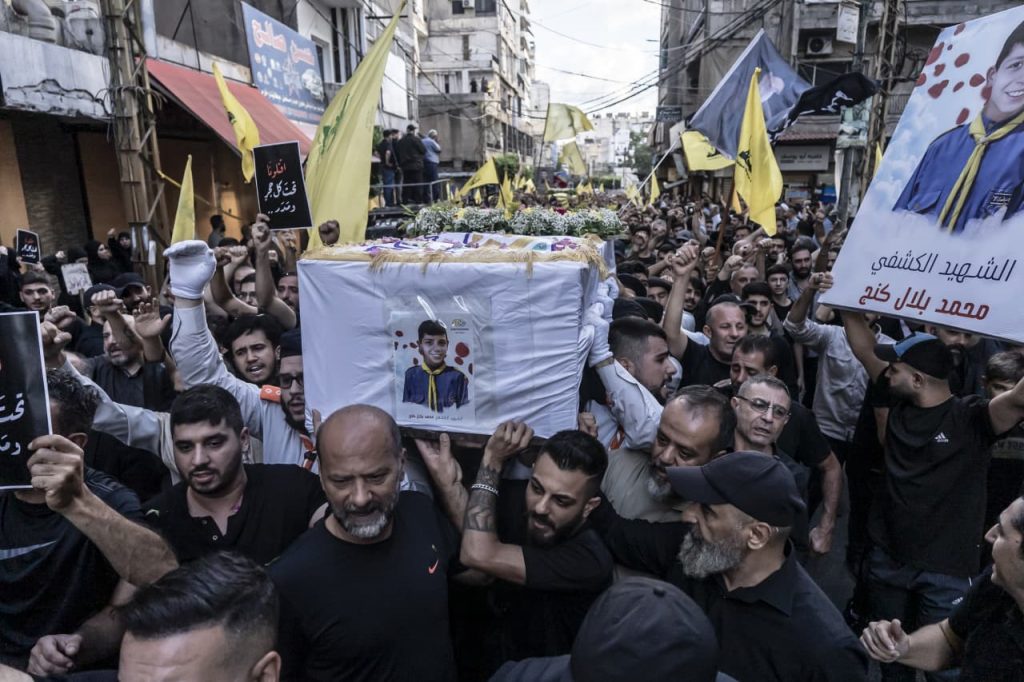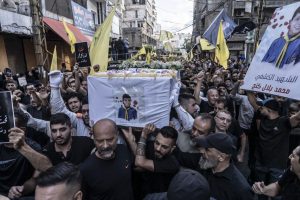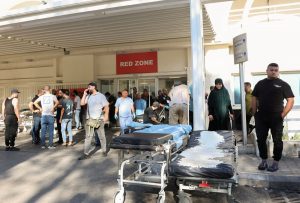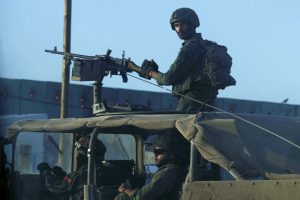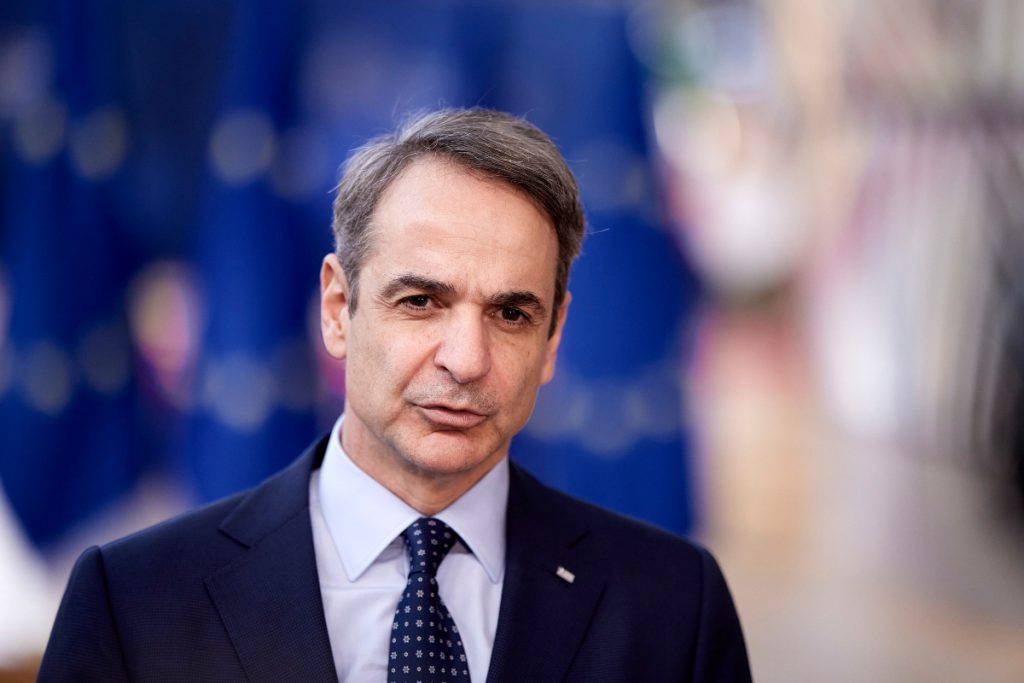BEIRUT— Israel launched another major attack on Hezbollah on Friday, with a strike in the Lebanese capital that it said killed one of the militant group’s top commanders, Ibrahim Aqil, as the risks rise of a broader conflict between the longtime adversaries.
The Israeli military said its airstrike had killed Aqil, who it said had run Hezbollah’s operations team and its Radwan special forces, and around 10 other senior commanders who had gathered underground in Beirut’s southern suburbs.
Hezbollah hasn’t confirmed Aqil ’s death. Lebanon’s Health Ministry reported at least 12 dead and 66 wounded.
The strike represents a significant blow and another huge security failure for a group already struggling to recover from a week of airstrikes across southern Lebanon and covert attacks that caused electronic devices carried by thousands of the militant group’s members to explode virtually simultaneously.
Friday’s attack sent a plume of gray smoke up from a residential area in the southern suburbs where Hezbollah maintains a heavy presence. Images from the scene showed damage to several buildings and rubble in the street, including burned-out cars and motorbikes.
Aqil, a U.S.-designated terrorist, has served on Hezbollah’s top military council. The U.S. has linked him to the 1983 bombing of the U.S. Marines barracks in Beirut and the kidnapping of Americans in the 1980s. The State Department last year announced a reward of up to $7 million for information about Aqil.
“Ibrahim Aqil is a senior commander, the closest person to Nasrallah,” Israeli military spokesman Daniel Hagari said, referring to Hezbollah leader Hassan Nasrallah.
Israel has conducted several high-profile intelligence operations in and around Beirut since Hezbollah began firing rockets into Israel after the Hamas-led Oct. 7 attacks that set off the war in Gaza. In late July, Israel killed top Hezbollah commander Fuad Shukr in an airstrike in the city. Earlier in the year, Saleh al-Arouri, a founding member of Hamas, was also killed there in a suspected Israeli strike.
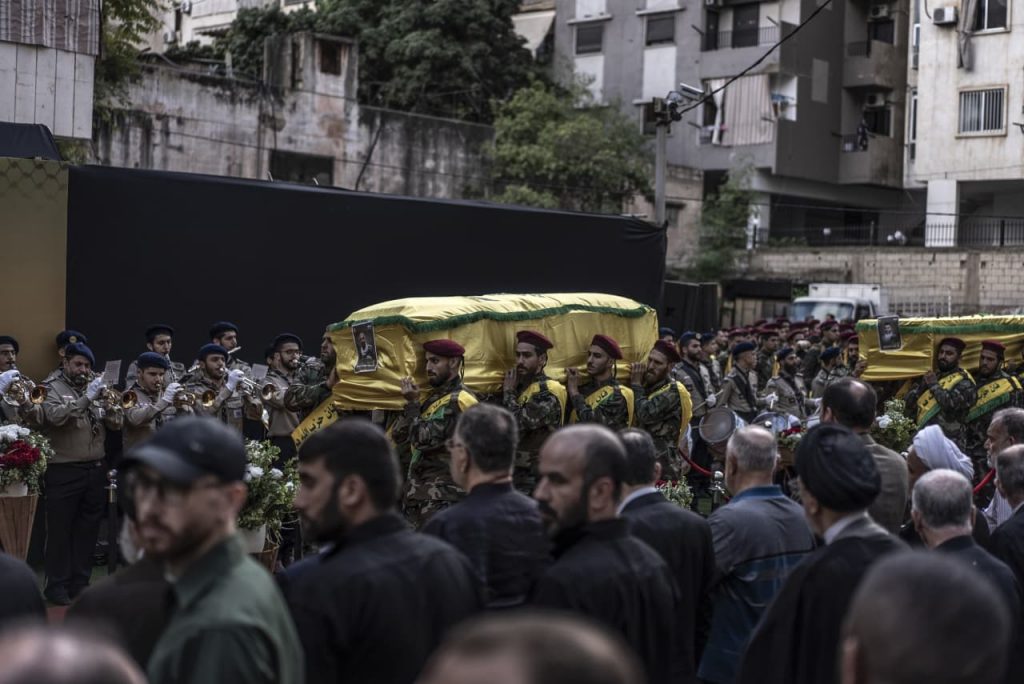
Hezbollah fighters carry the coffin of a group member who was killed in a pager explosion. Photo: Manu Brabo for WSJ
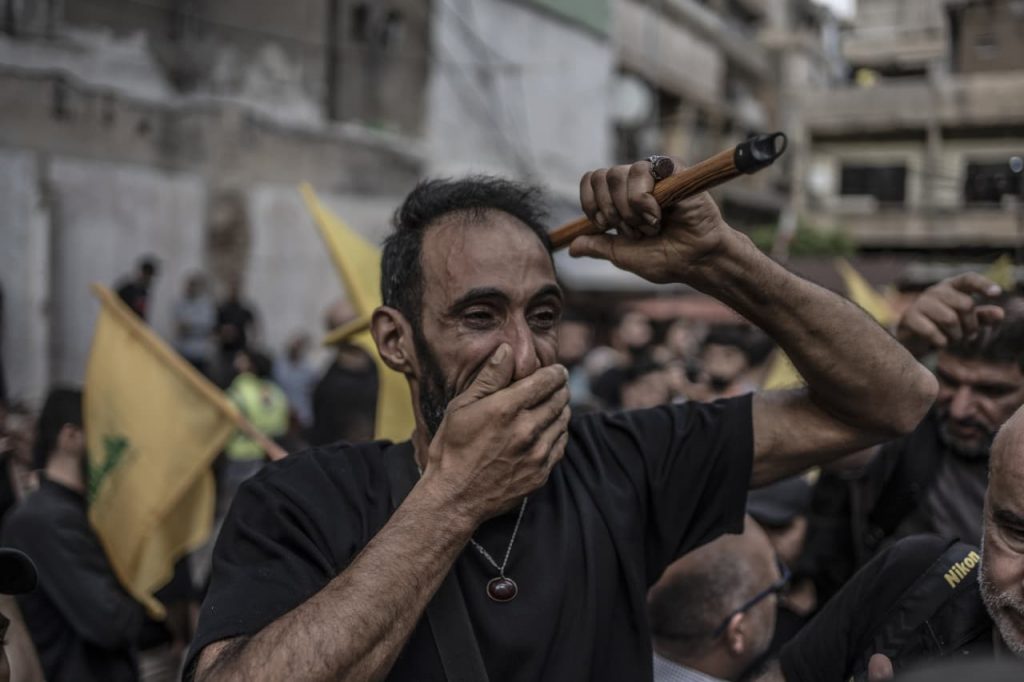
A funeral procession in Beirut for a Hezbollah member killed in a pager explosion. Photo: Manu Brabo for WSJ
The Lebanese militant group has been trying to determine whether any of its networks are safe as it searches for security gaps and hunts down possible moles in the organization, people familiar with the matter said.
Now it must also contend with the likelihood of further blows as Israel steps up its efforts to end Hezbollah rocket and drone attacks that have forced the evacuation of more than 50,000 people from northern Israel. Despite the blows, Hezbollah has continued to launch projectiles, including explosive drones, into northern Israel. Hezbollah said Friday it had fired Katyusha rockets at two military bases, including an intelligence base, in northern Israel.
Analysts say Aqil is one of the most important figures in Hezbollah. He inherited Shukr’s role after his assassination this summer, and before that maintained a low profile to avoid being targeted by Israel and the U.S. He is also the subject of multiple Interpol arrest notices, and analysts say he developed close ties to the Russians during Hezbollah’s involvement in Syria’s civil war over the past decade.
“He is among the people in Hezbollah who are most skilled, most trusted and most knowledgeable of its internal organization and military operations,” said Randa Slim, a senior fellow at the Middle East Institute, a think tank in Washington.
Israeli Defense Minister Yoav Gallant warned late Thursday that “the sequence of military actions will continue” as Israel shifts its focus to the north and brings in new troops. Top U.S. military officials are worried that Israel could launch a ground offensive in Lebanon.
U.S. Defense Secretary Lloyd Austin canceled plans to travel beginning this weekend to Israel, Qatar and Saudi Arabia. Many of Washington’s closest Arab allies and partners in the Middle East fear a possible Israeli invasion of Lebanon, according to Arab officials, who said it could trigger unrest across the region and an opportunity for extremist groups to harness that anger and regroup.
Matthew Levitt, a senior fellow at the Washington Institute think tank, said Israel was looking to neutralize Hezbollah’s capability to wage war by targeting key personnel, telecommunications networks and weapons systems. He predicted more such strikes, including potentially against long-range rockets that carry bigger warheads and precision-guided munitions.
“It’s more than just a message,” he said. “It is actually intended to pull the carpet out from under Hezbollah’s military capabilities and make it so that they no longer pose the threat that they have been posing very tangibly for the past 11 months, and have been threatening for much longer.”
Even Hezbollah members’ confidence in their own organization has been shaken by this week’s attacks on electronic devices, said Levitt, who has written a book about the group.
“What gear can I use? Who can I trust? Where’s the mole?” he said.
On Friday, many of Hezbollah’s officials and members couldn’t be reached on their mobile phones. One official said the group was struggling to regroup amid worries about the extent to which its communications infrastructure was compromised by the Israelis.
“There is no doubt that we have been subjected to a major security and humanitarian blow that is unprecedented in the history of the resistance in Lebanon at least and unprecedented in the history of Lebanon,” Nasrallah said in a speech Thursday addressing the attacks on the group’s pagers and walkie-talkies that left at least 37 dead and nearly 3,000 injured.
The initial attack, which caused Hezbollah pagers to explode on Tuesday, set off a scramble inside the group to re-establish lines of communications and figure out how the attack took place. The arrival of a second wave of explosions targeting walkie-talkies the day after heightened concerns about whether any of the group’s systems could be trusted, people familiar with the matter said.
Israel followed up with airstrikes on what it said were 100 Hezbollah rocket-launch sites and other positions in Lebanon. The airstrikes took place as Nasrallah was preparing to deliver his speech Thursday, and then later that night. Israeli jets also flew over Beirut, setting off sonic booms as the jets broke the sound barrier, to punctuate the message.
Thursday’s airstrikes were more extensive than in previous days and came as the Israeli chief of staff, Herzi Halevi, approved battle plans for the country’s northern front against Hezbollah. Israel recently added the return of evacuated residents to their homes in the north to its official war goals.
Hezbollah is looking into the possibility that collaborators inside the group might have leaked information about the procurement of pagers used by the group and whether files from the organization were handed over to Israel, officials with the group said.
“What Israel has done is it has delivered a very powerful psychological and tactical blow to Hezbollah, and it’s devastating,” said Fawaz Gerges, a Middle East expert and professor of international relations at the London School of Economics. “How do the rank and file feel now? They feel rattled, they feel shocked. They’re off balance.”
Penetration of the group’s communications networks has been an internal concern since early in the war. Nasrallah in February urged his rank and file to throw away their smartphones, saying Israel could use them for surveillance or targeting.
This week’s series of attacks comes as Hezbollah deliberates how to handle the cycle of violence playing out across the Israeli-Lebanese border, which continued in recent days with the group firing antitank missiles into Israel and Israeli warplanes striking in southern Lebanon. It now has to consider whether and how to respond to the extensive attacks on its home turf.
“I’m not going to talk about time or place or type of operation,” Nasrallah said Thursday. “But of course, the punishment will come.”
Hezbollah began firing across the border shortly after the Hamas-led Oct. 7 attacks on southern Israel that left 1,200 dead and sparked the war in the Gaza Strip. Nasrallah reiterated Thursday that the group would continue the barrage until the fighting in Gaza ended.
Gerges said this week’s attacks wouldn’t alter the strategic calculations between Hezbollah and Israel.
“Anyone who knows Hezbollah quite a bit from the inside out will tell you that these attacks will harden Hezbollah’s stance and will make Hezbollah more determined to resist and continue on its path,” he said.
Jared Malsin, Adam Chamseddine and Omar Abdel-Baqui contributed to this article.
